News
-
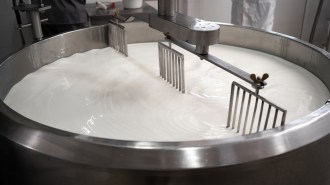 Health & Medicine
Health & MedicinePasteurization destroys H5N1 bird flu in milk
Tests show pasteurized dairy with H5N1 remnants did not cause illness in mice, supporting safety of milk during outbreaks.
By Jay Kakade -
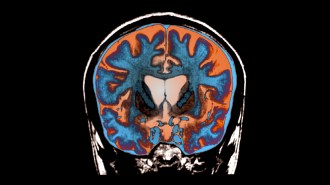 Health & Medicine
Health & MedicineIn a first, Huntington’s disease is slowed by an experimental treatment
An experimental gene therapy slowed Huntington’s by up to 75 percent in a small clinical trial. While not a cure, it may give patients longer lives.
-
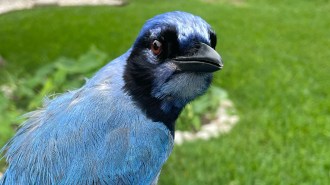 Animals
AnimalsMeet the ‘grue jay,’ a rare hybrid songbird
Despite millions of years of evolutionary separation and a geographical divide, a blue jay and green jay mated in Texas. This bird is the result.
By Sarah Boden -
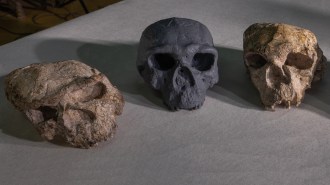 Anthropology
AnthropologyAn ancient Chinese skull might change how we see our human roots
Digital reconstruction of a partially crushed skull suggests new insight into Homo sapiens’ evolutionary relationship to Denisovans and Neandertals.
By Bruce Bower -
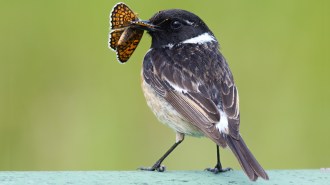 Animals
AnimalsIs camouflage better than warning colors? For insects, it depends
The effectiveness of camouflage or warning colors for insect defense depends on conditions such as light levels and how many predators are around.
By Jake Buehler -
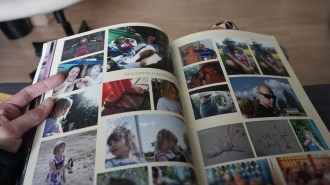 Psychology
PsychologyStriking moments make previous memories stronger
Emotional events help solidify memories. The findings may one day help students study or trauma survivors recover.
By Sujata Gupta -
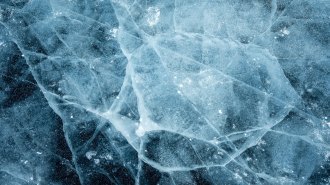 Physics
PhysicsIce is more flexible than you think, a new nano-movie shows
Scientists have filmed nanoscale ice crystals adapting to trapped air bubbles without losing structural integrity.
-
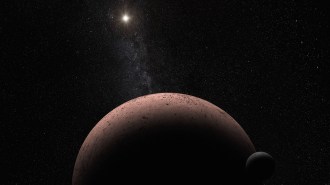 Planetary Science
Planetary ScienceDwarf planet Makemake sports the most remote gas in the solar system
The methane gas may constitute a rarefied atmosphere, or it may come from erupting plumes on Makemake’s surface.
By Ken Croswell -
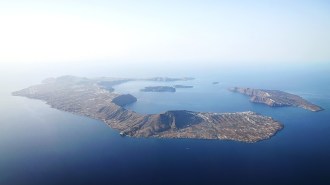 Earth
EarthTwo of Greece’s most dangerous volcanoes share an underground link
Seismic and land deformation data show that Santorini and Kolumbo draw from the same magma source, complicating eruption forecasts.
-
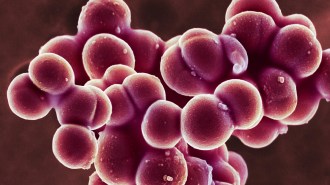 Microbes
MicrobesStaph bacteria are bad at letting go
Calcium, a mineral involved in wound healing, can strengthen the attachment between microbe and skin and make infections hard to shake.
-
 Health & Medicine
Health & MedicineWith little proof, Trump links Tylenol to autism and touts a treatment
The FDA plans to add a warning to Tylenol’s label and OK use of a drug for autism. Researchers say there’s little data to support either move.
- Space
This black hole flipped its magnetic field
Event Horizon Telescope data reveal the magnetic field around M87* shifted, weakened and then flipped, defying theoretical expectations.